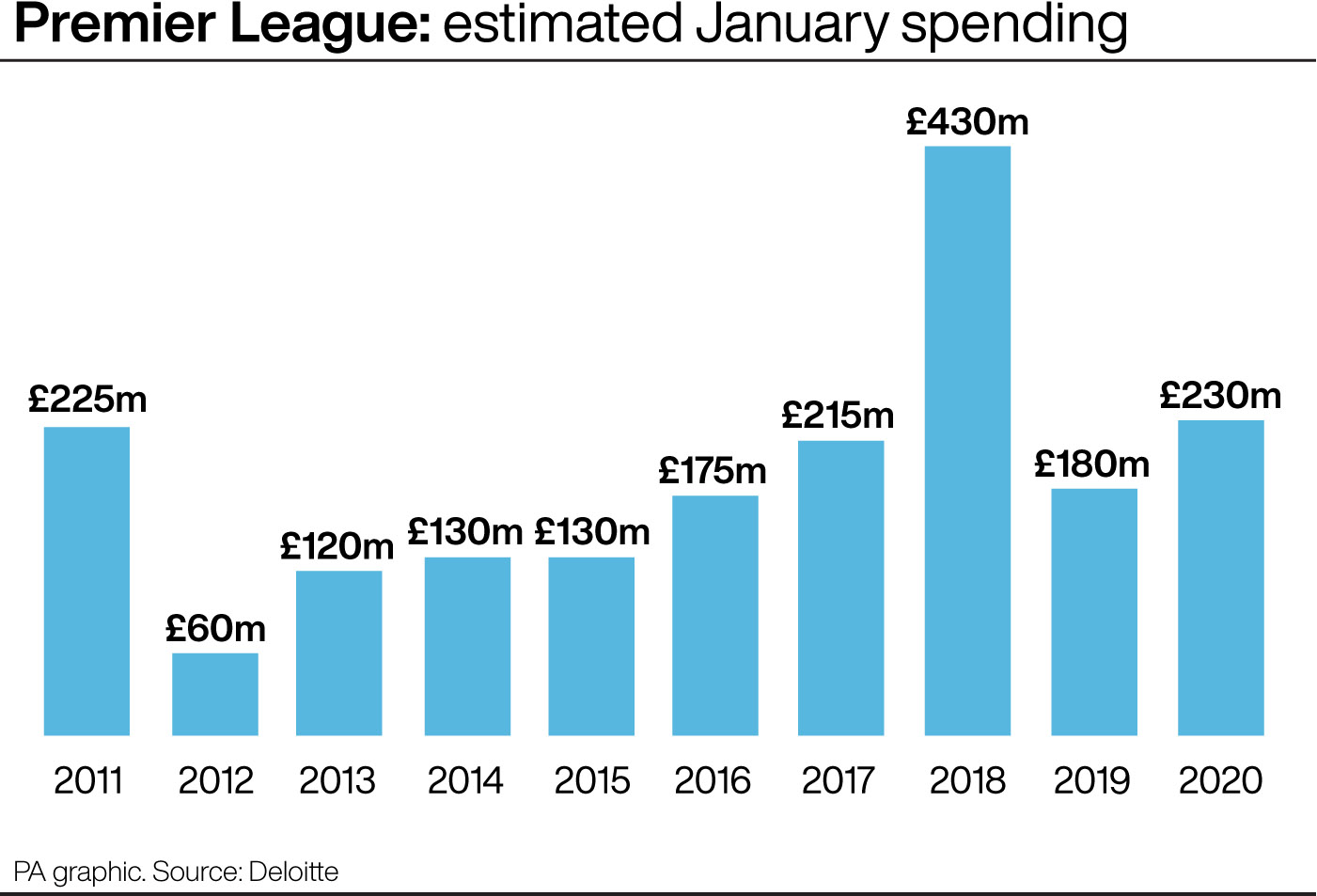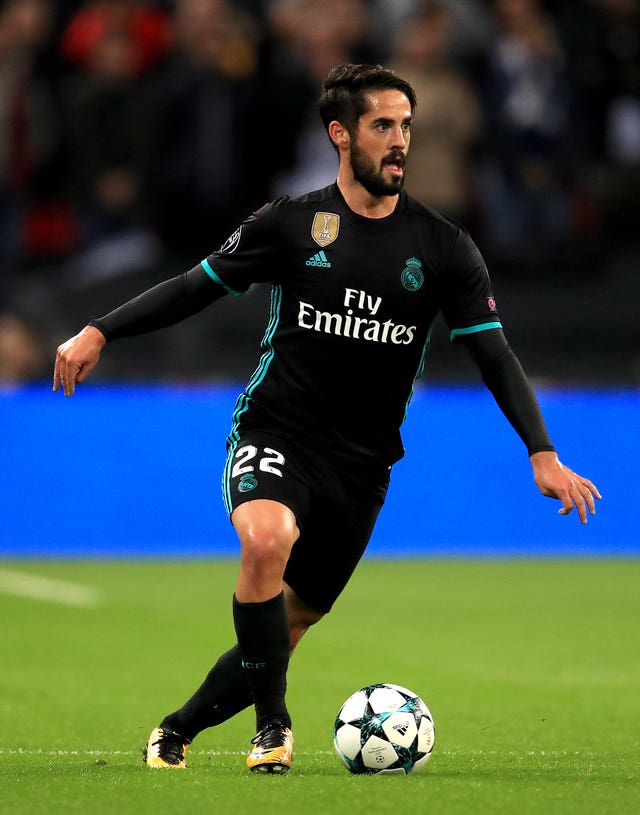The Premier League's spending power will be under scrutiny once more in a January transfer window unlike any which has gone before.
Previous winter windows have seen a steady upward trend in the league's spending, albeit with a couple of eye-catching outliers.
January 2011, when £225million was spent including big-money moves in and out of Liverpool for strikers Andy Carroll and Fernando Torres, nestled in between figures of £30m in 2010 and £60m in 2012.

A record-smashing 2018 window saw £430m spent, kick-started by Liverpool signing Virgil Van Dijk, but the figures of £180m and £230m for the two years since are more in line with what has gone before.
It remains to be seen whether the upward curve will continue this year, with the double upheavals of coronavirus and Brexit sure to impact both financially and on travel.
Clubs have been playing games almost exclusively behind closed doors since football resumed in June and, while that has less of an impact on Premier League finances than those in the lower divisions, the league has estimated its clubs lost around £700m due to the pandemic last season with the effects continuing to be felt in the new campaign.
Nevertheless, champions Liverpool will have to decide whether to sign cover for the injured Van Dijk, Manchester City could pursue a striker and teams at both ends of the table will all be seeking improvements.
A host of big names from around Europe continue to be linked with Premier League moves, headlined by the likes of Borussia Dortmund hot-shot Erling Haaland, RB Leipzig defender Dayot Upamecano and Real Madrid pair Isco and Luka Jovic.

England midfielders Dele Alli and Declan Rice and Brighton duo Ben White and Tariq Lamptey are among the highest-profile names linked with domestic moves, with clubs expected to still splash the cash despite the various obstacles facing them.
The Premier League's lucrative television deals help to underpin clubs' spending power and also create the imperative to spend, as Football Index co-founder Mike Bohan told the PA news agency at the close of the summer window.
A report by the Centre for Economics and Business Research (CEBR), commissioned by Football Index, found the Premier League accounted for an extraordinary 97 per cent of the summer's net spend across Europe's 'big five' leagues and Bohan said: "In terms of future windows, one of the reasons for this is the power of the TV money in the Premier League.
"For finishing bottom last season, Norwich got £87m in TV money. So this level of spending is something of a self-perpetuating problem because every club is desperate to not fall out of the league, and with that TV money on offer their safest bet of staying in is to invest in the playing staff."









